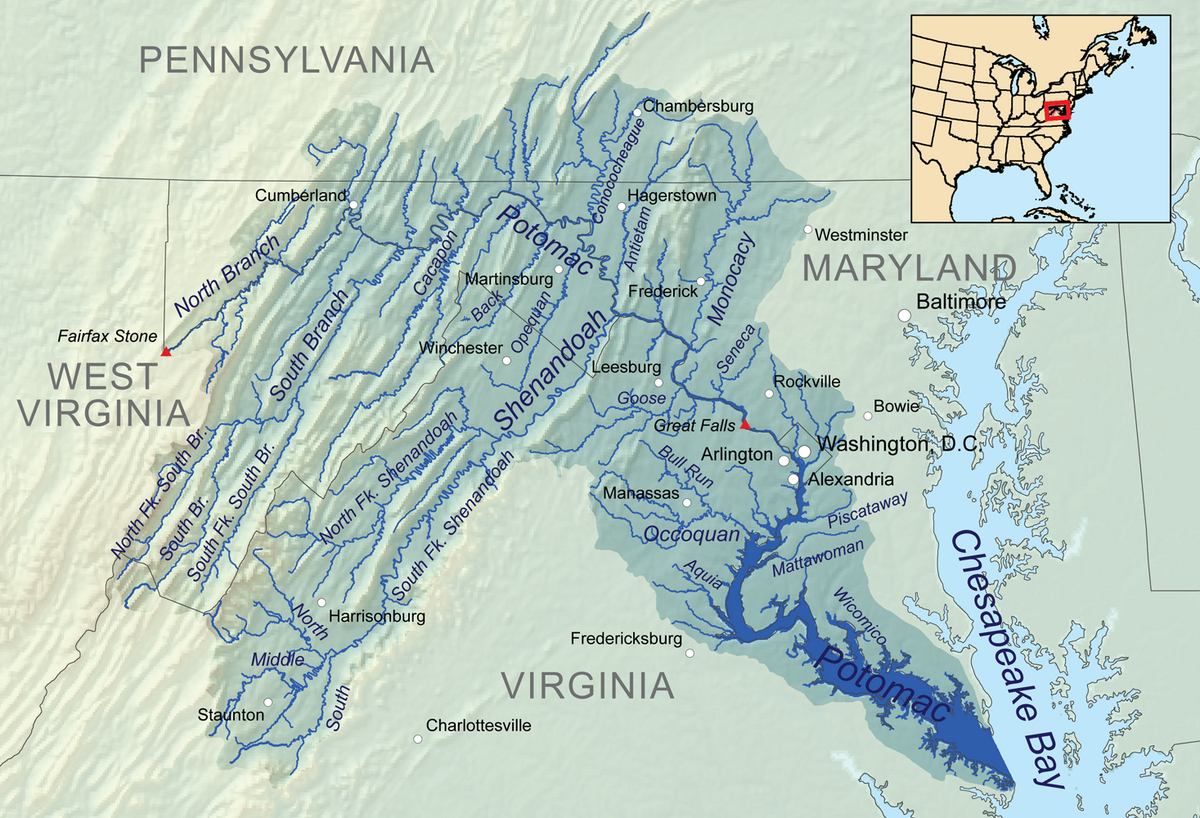It may seem strange for a water purification company to write a level-headed blog post about municipal tap water, but you have to give credit where credit is due! Municipalities are tasked with taking water from the sources like the Potomac River and making it comply with federal drinking water standards, and doing this on an enormous scale.
The Washington Aqueduct (Army Corps of Engineers)and DC Water (District of Columbia Sewer and Water Authority or DC WASA) are the two government entities that produce and distribute Washington D.C.’s tap water. The Washington Aqueduct collects water from the Potomac River, treats it, and sells it to DC Water, and DC Water is responsible for distributing the water to homes and businesses in DC, as well as maintaining water quality standards along the way.
The Washington Aqueduct (Army Corps of Engineers)and DC Water (District of Columbia Sewer and Water Authority or DC WASA) are the two government entities that produce and distribute Washington D.C.’s tap water. The Washington Aqueduct collects water from the Potomac River, treats it, and sells it to DC Water, and DC Water is responsible for distributing the water to homes and businesses in DC, as well as maintaining water quality standards along the way.

By Kmusser - Own work, Elevation data from SRTM, hydrologic data from the National Hydrography Dataset, urban areas from Vector Map, all other features from the National Atlas., CC BY-SA 3.0
The source of all Washington D.C. tap water is the Potomac River. The Washington Aqueduct transforms untreated water from the Potomac River into the water that flows from our taps. The multi stage treatment process starts by screening out large objects (e.g. sticks & twigs), and allowing large particles (soil, silt, sand) to settle out naturally. After this step, aluminum sulfate is mixed into the water, which causes small suspended particles and colloids to aggregate and settle out. The water is then passed through a large gravity-fed filtration bed comprised of charcoal, sand, and gravel. After this step, chlorine is added to the water, which kills microorganisms, and ammonia is added, which converts the chlorine to chloramine. Finally, fluoride (as hexafluorosilicic acid) and orthophosphate (a corrosion inhibitor) are added, and this water is purchased by DC WASA to distribute to their customers in The District.
DC WASA does much more than “keeping the pipes flowing” (which with more than 1300 miles of pipe is a logistical feat on its own), they also employ a team of dedicated water quality experts, all working to ensure that water quality meets or exceeds standards set by US EPA. This means running 24/7 compliance (tests that they are legally obligated to do) and voluntary (above and beyond) monitoring programs throughout the city. One interesting aspect of this voluntary program is maintaining mobile laboratories that are staffed with technicians that can be dispatched to investigate emergencies and respond to customer complaints.
DC WASA also puts a great deal of time and effort into community engagement and public awareness. DC WASA participates in over 100 community outreach events each year to help customers understand the valuable water services they provide. One example of these programs is the Clean Rivers Project, where DC WASA promotes best practices practices to minimize the amount of sewer overflow that is discharged into D.C.'s waterways. In addition to managing a water education program for District students, DC WASA hosts annual town hall meetings in every ward of the city.
Throughout my career, I’ve had the opportunity to work with a number of municipalities (both large and small), and DC WASA does a very good job with information transparency. I would encourage all residents to check out their website (www.dcwater.com) for more information, which includes things like: water quality reports, overall strategic plan, and the role that residents play in maintaining water quality within their own home.
DC WASA does much more than “keeping the pipes flowing” (which with more than 1300 miles of pipe is a logistical feat on its own), they also employ a team of dedicated water quality experts, all working to ensure that water quality meets or exceeds standards set by US EPA. This means running 24/7 compliance (tests that they are legally obligated to do) and voluntary (above and beyond) monitoring programs throughout the city. One interesting aspect of this voluntary program is maintaining mobile laboratories that are staffed with technicians that can be dispatched to investigate emergencies and respond to customer complaints.
DC WASA also puts a great deal of time and effort into community engagement and public awareness. DC WASA participates in over 100 community outreach events each year to help customers understand the valuable water services they provide. One example of these programs is the Clean Rivers Project, where DC WASA promotes best practices practices to minimize the amount of sewer overflow that is discharged into D.C.'s waterways. In addition to managing a water education program for District students, DC WASA hosts annual town hall meetings in every ward of the city.
Throughout my career, I’ve had the opportunity to work with a number of municipalities (both large and small), and DC WASA does a very good job with information transparency. I would encourage all residents to check out their website (www.dcwater.com) for more information, which includes things like: water quality reports, overall strategic plan, and the role that residents play in maintaining water quality within their own home.


